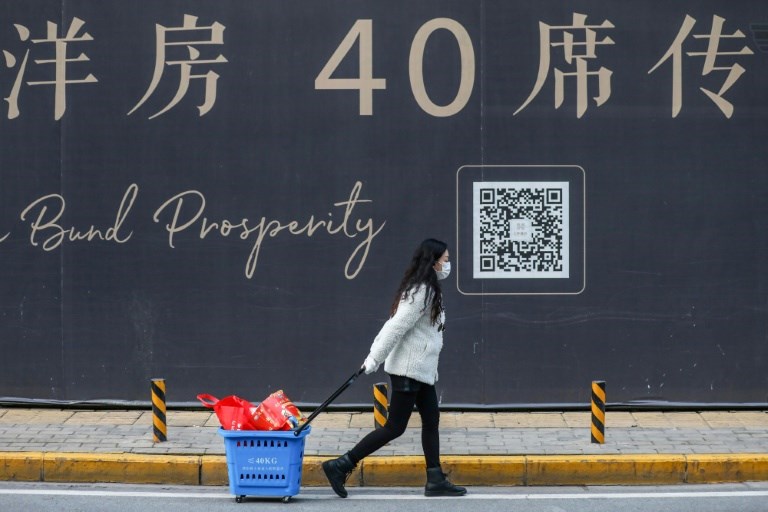From being ostracised by the international community as the centre of the deadly coronavirus outbreak, China is seeking to reframe itself as a global expert that can help hard-hit regions battle the disease.
Beijing is keen to reposition the virus as a global outbreak and not just a China malaise as it sends testing kits and experts overseas and translates treatment manuals into foreign languages.
The deputy foreign minister said at a press conference Thursday that China had shared its treatment plan with "many countries".
An expert team has already been sent to Iran, where 92 people have died, along with 5,000 testing kits and 250,000 face masks.
Foreign ministry spokesman Zhao Lijian said China has sent testing equipment to Iran, Pakistan, Japan and some African countries.
"While fighting the epidemic at home, we will continue working with other sides and offer them assistance," Zhao told a press briefing this week.
As the number of new infections drop in China and swell overseas, the country now worries about importing cases, with 20 reported so far, including from Italy and Iran.
Several cities and provinces including Beijing have imposed a 14-day quarantine on people arriving from hard-hit countries.
A loudspeaker message at Beijing's airport asks passengers to register on arrival.
And this week Beijing flew 146 citizens back from Iran -- a symbolic turn of events since governments were scrambling to fly their citizens out of virus-hit China only a month ago.
- Ready for export -
A few weeks ago, Chinese officials were putting in calls to try and shore up overseas support as countries imposed travel bans.
Now, outgoing calls are to offer technical advice, sharing China's experience through video conferences with the European Union and other nations.
State media reported that a manual offering advice on controlling the spread of the virus had been translated into Persian and made free to download.
After scrambling with a huge shortage of medical equipment, China is now looking to export material.
An industry ministry spokeswoman this week said China's production of hazmat suits now exceeds demand from Hubei province -- where the virus first emerged in December -- and encouraged companies to adapt to meet foreign demand.
China is likely to keep "claiming authority" over the epidemic based on its achievements, said Dorothy Solinger, an expert on Chinese politics at the University of California at Irvine.
"Of course the trouble is most other parts of the world aren't in a position to command the population the way the Chinese government can, so it's unlikely that China can truly become a model," she said.
"But it's a brilliant move to pretend that they've discovered a way that can be useful to other countries."
China has also been stressing the outbreak is a "global fight" and casting doubt over the source of the virus.
The foreign ministry said this week the origin of the virus is "not necessarily in China" -- contradicting an earlier official assessment that it likely came from wild animals sold at a seafood market in Wuhan.
- Superior governance -
The government came under a torrent of criticism online after a Wuhan doctor who had been reprimanded by police for warning about the virus in December died from the disease himself.
Authorities in Hubei have also been accused of seeking to cover up the outbreak in early January.
But state media has used signs of success to flag a victory for China's political system.
"It's impossible for European countries to adopt the extreme measures that China has implemented," the nationalistic Global Times wrote in an editorial.
Beijing is keen to use the epidemic to show "its system of governance is superior to the Western liberal democracy's system of governance," said Yun Jiang, researcher at Australian National University.
"The propaganda within China has been focused on what it perceives as its competitive advantage... including the speed of construction of hospitals and locking down cities," she said.
Yun added that if other countries struggle to contain COVID-19, it will allow Beijing to deflect the criticism it has also faced over its own handling of the outbreak.
"This would be a huge boon for its propaganda efforts," she said.



